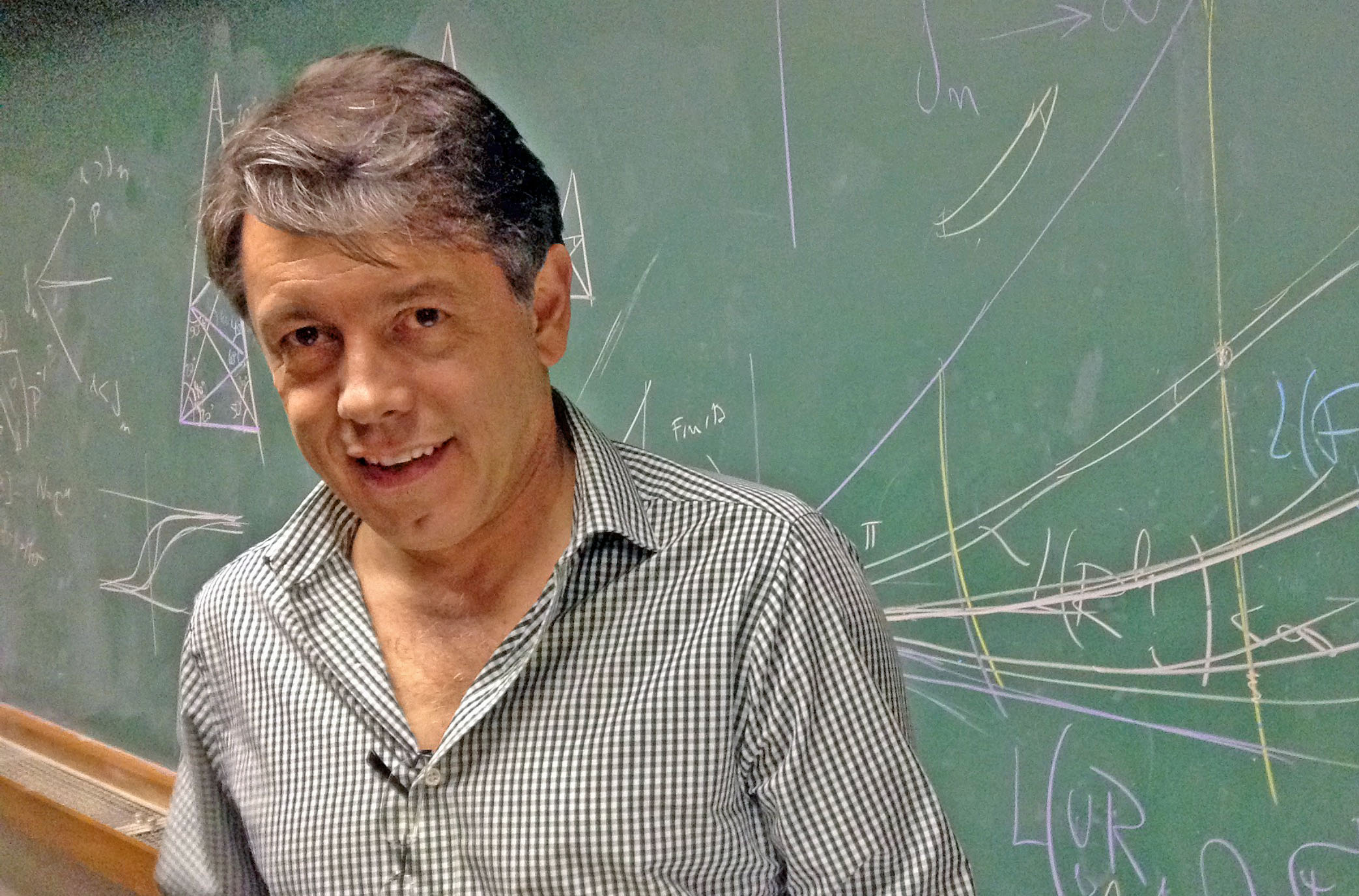Rio de Janeiro is preparing to host a major international contest of skill, talent and mind-boggling human feats – and it’s not the Olympics.
The International Mathematical Olympiad (IMO), an annual competition for pre-collegiate math whizzes, is coming to Brazil for the first time next year. And as with the Games, officials are hoping that Brazil’s “mathletes” will have their strongest showing ever while competing on home turf.
Much of that responsibility is falling on Marcelo Viana, the new director of Rio’s prestigious National Institute of Pure and Applied Mathematics (IMPA by its initials in Portuguese), which will host the IMO in 2017. He’s in charge of organizing the event and overseeing the Brazilian team’s training schedule.
“I definitely think this is our occasion to get a better national rating,” said Viana. “It isn’t so important in itself but it’s what it causes.”
How to cultivate Brazil’s next generation of mathematicians has become a top priority for Viana since assuming IMPA’s leadership in December with an ambitious agenda to make the institute more involved in public education. Among many initiatives, he is expanding an annual school math contest, introducing merit pay for math teachers, and overseeing IMPA’s biggest building addition in nearly four decades to accommodate a growing number of activities.
As if all that wasn’t enough, IMPA is preparing to host the International Congress of Mathematicians (ICM) in 2018 – a major quadrennial event never before held in South America that includes the presentation of math’s top awards, such as the Fields Medals.
Whether Viana can pull it all off will influence IMPA’s role in education, math’s future in Brazil, and the country’s reputation as a host for not just mega-sports events like the Olympics but also mega-academic events. It won’t be easy: a recession is biting into IMPA’s budget, teachers unions are pushing back against Viana’s initiatives, and the International Mathematical Union is expressing concern over Brazil’s ability to host the ICM for the same financial and political obstacles that have beleaguered the Rio Games.
The internationally renowned math professor appears to approach all of this with a calm air of curiosity and analysis, perhaps as he might with any problem.
“We are morally obliged to have bold plans for the future, even if the surroundings are not so helpful,” Viana, 54, told AQ during an interview at the institute. “IMPA is not the only math institution in the country, but it is the leading institution, and in many respects it is the engine.”
Founded in 1952, IMPA has had a lot of practice organizing big math events. Every year it oversees a nationwide competition known as the Brazilian Public School Math Olympiad (OBMEP) for more than 18 million students from grades six to 12. IMPA also organizes a more selective Brazilian Math Olympiad (OBM) for half a million students, with one past winner being Artur Avila, who went on to take gold at the International Math Olympiad in 1995, earn his doctorate from IMPA and receive the Fields Medal in 2014.
“Artur’s Fields Medal is of course important for himself and for IMPA, but it’s much more important because it tells our kids that it’s possible to get a Fields Medal in this country, with all our difficulties and problems,” Viana said.
The OBMEP is already recognized as the world’s largest math contest, but Viana is trying to expand it further to younger grades to combat what he calls a “crisis in education.” He also wants to score teachers based on OBMEP results through a pilot program that may be the first-ever merit-based pay scheme for teachers in Brazil. Viana said both moves are “extremely controversial” with unions that resist testing.
But something has to change. More than two-thirds of Brazil’s high school students are low-performing in mathematics, and the nation awards just a fraction of math doctorates every year. “Whatever the reasons,” Viana said, “that’s something we have to solve or it will destroy us.”
To expand programming, IMPA needs more money. The OBMEP costs about 54 million reais ($16.2 million) a year, absorbing more than half of IMPA’s budget. The institute is also launching a 100 million reais ($30 million) physical expansion, and there’s the expense of putting on the International Mathematics Olympiad for some 1,000 student contestants from more than 100 countries as well as the ICM for about 5,000 participants.
“It is a great opportunity to increase public awareness of mathematics and to encourage young talents,” said IMPA researcher Carolina Araujo, a member of the organizing committee for the ICM.
Yet rather than increasing funds for IMPA, the federal government slashed IMPA’s 2016 budget by about 30 percent to 89.2 million reais ($26.8 million). An ongoing political crisis has also created turnover within the ministries of Education and Science just when IMPA needs their steady support.
Viana is pushing congress to pass a bill dedicating Brazil to the “cause of mathematics” for the next two years. He’s also tapping a network of private donors that includes former central bank chief Arminio Fraga and U.S. hedge fund manager Jim Simons. Additionally, media magnate Roberto Marinho funds a research position at IMPA, provides advertising for the annual math olympiad and recently donated land for the institute’s expansion. And filmmaker João Moreira Salles sponsored a design contest for the addition.
Jailson Bittencourt de Andrade, Secretary of Policies and Programs of Research and Development at the Ministry of Science, Technology and Innovation, said for the government’s part that supporting IMPA’s agenda would be “high on the ministry’s priority list.”
“Despite the difficulties Brazil is currently facing, we are committed to providing all the support IMPA will need,” he told AQ. “The Ministry is fully aware of both the importance of IMPA’s initiatives for the greater cause of science and education in Brazil, and of IMPA’s total capacity to realize them with excellent results.”
–
Kurczy is a special correspondent for AQ.





